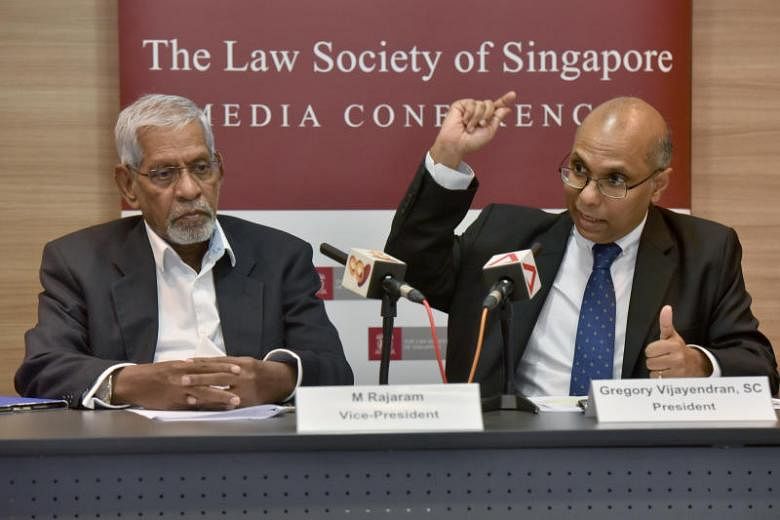SINGAPORE - A purchaser of a property in Singapore unknowingly transferred some $300,000 by electronic means to a scammer pretending to be her legal solicitor last month.
After hacking into the purchaser's e-mail account and extracting her solicitor's details, the scammer impersonated the lawyer by using an extremely similar-looking e-mail. The differences included an underscore and two extra letters to the lawyer's e-mail domain name.
Fortunately, the payment was stopped in time.
President of the Law Society of Singapore (LawSoc) Gregory Vijayendran on Friday (May 24) highlighted the incident to remind members of the public to be wary of cyber attacks involving legal transactions.
He said clients should always verify with their lawyer before effecting payments in the event that they receive e-mail requests for funds transfers purportedly from the solicitor.
Speaking to reporters at his office, he said if any instructions from the last communication deviate, clients should also check with the law firm before taking action.
Police figures showed that in 2018, victims of business e-mail impersonation scams in Singapore suffered a combined loss of $57.9 million, the biggest amount lost to online scams.
Mr Vijayendran said the reminder is timely in light of two incidents that occurred in the second half of April.
In the case of the property purchaser, he said the scammer, while pretending to be the woman's lawyer, insisted that the developer would not accept the 25 per cent payment of the purchase price by cheque.
The scammer claimed payment must be made only through telegraphic transfer.
Pressured by the scammer's constant e-mail reminders, the woman proceeded to make payment to the stipulated bank account.
Fortunately, her bank had not effected the payment when she and her solicitor realised the transaction was a scam. They were able to cancel the transfer.
The other case also involved a real estate deal.
Mr Vijayendran said the client lost a significant amount of money after transferring funds to a Bank of China account in Hong Kong. The scammer had used a similar ruse by pretending to be from a law firm.
"In light of these two incidents, we felt the need to raise awareness among members of the public as they engage in such transactions, whether they involve conveyancing or corporate matters," said Mr Vijayendran.
The law firms involved in the two cases had notified the LawSoc of the incidents in a bid to spread awareness of such scams.
Mr Vijayendran said law firms should also explain the conveyancing timelines to clients who are less familiar with the process. This, he added, should be done in writing.
"It is important to take appropriate steps to clearly communicate payment instructions to clients, especially those who may not be as IT savvy, such as elderly clients," he said.

